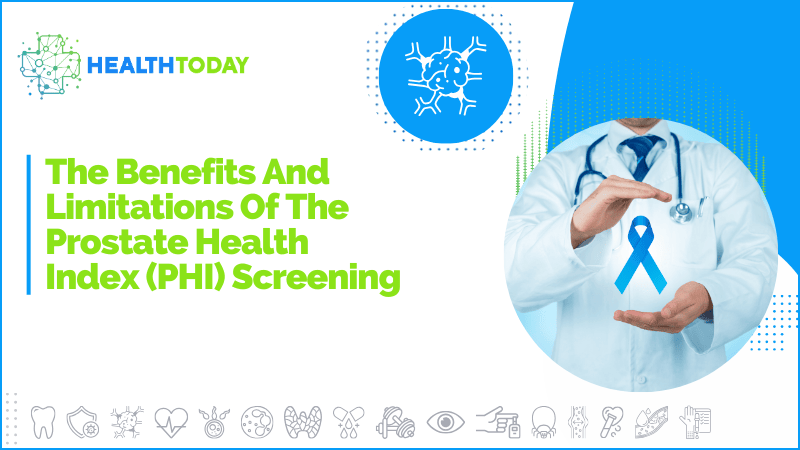
Prostate cancer is a significant health concern for men worldwide. Detecting this cancer early is crucial for successful treatment outcomes. Traditional screening methods like the prostate-specific antigen (PSA) test have limitations in terms of accuracy and specificity. However, the Prostate Health Index (PHI) screening has emerged as a promising alternative. The PHI combines three different PSA tests to provide a more reliable assessment of prostate cancer risk. These are the benefits and the limitations of PHI screening, highlighting its potential to improve prostate cancer detection and patient outcomes.
Click here to view a sample of the PHI screening report
Prostate Health Index (PHI)
The Prostate Health Index (PHI) screening offers significant benefits in improving the accuracy of prostate cancer detection and risk stratification. By combining multiple PSA markers, the PHI test provides a more reliable assessment, reducing false positives and unnecessary invasive procedures. While the PHI screening has limitations in terms of availability, cost, and the possibility of false-negative results, ongoing efforts are being made to address these concerns. With further research and advancements, the PHI screening has the potential to become a valuable tool in the early detection and management of prostate cancer, ultimately leading to better patient outcomes.
The Prostate Health Index (PHI) screening is a valuable tool in the early detection of prostate cancer. By combining the measurement of total PSA, free PSA, and proPSA, the PHI test provides a comprehensive evaluation of prostate health and a refined assessment of the risk of prostate cancer. With its improved accuracy and personalized risk assessment, PHI screening holds great promise in enhancing prostate cancer detection and reducing unnecessary procedures.
It's important to note that the PHI test is not meant to replace other diagnostic procedures, such as biopsies, but rather to complement existing screening methods. If you have concerns about your prostate health or are at an increased risk of prostate cancer, consult with your health care provider to discuss whether the Prostate Health Index (PHI) screening is appropriate for you. Remember, early detection and proactive management are key to improving outcomes in prostate cancer. Stay informed, prioritize your health, and be proactive in seeking regular screenings and check-ups.
Health Today is a multi-disciplinary clinic designed to deliver competent, convenient access to health and wellness services in a timely fashion. We are committed to empowering our community to take control of their own comprehensive health and wellness by making access to the best resources for prevention, diagnosis, and care easy and affordable. If you have any questions regarding the advanced private lab tests available, connect with our Health Today team today. To book your PHI screening or any other private lab services read our booking instructions and then book your advanced lab services.
The PHI screening improves prostate cancer detection by considering multiple PSA markers (total PSA, free PSA, and proPSA) and their ratios, providing a more comprehensive assessment of prostate health. This approach reduces false positives and helps differentiate between aggressive and indolent prostate cancers, leading to more accurate risk stratification and targeted interventions.
The Prostate Health Index screening is not meant to replace other diagnostic procedures, but rather to complement existing screening methods. While the PHI test enhances risk assessment, it does not provide a definitive diagnosis. If the PHI screening indicates an increased risk of prostate cancer, further diagnostic tests, such as biopsies, may be recommended to confirm the presence of cancer and determine its aggressiveness.
It's important to consider that the Prostate Health Index screening is a tool for risk assessment and not a standalone diagnostic test. It should be interpreted in conjunction with other clinical factors and individual patient characteristics. Additionally, the PHI screening may not be as effective in men with certain conditions, such as acute prostatitis or recent prostate procedures, which can impact PSA levels. Therefore, consulting with a healthcare provider is essential to determine the appropriateness and interpretation of the PHI screening results in each specific case.